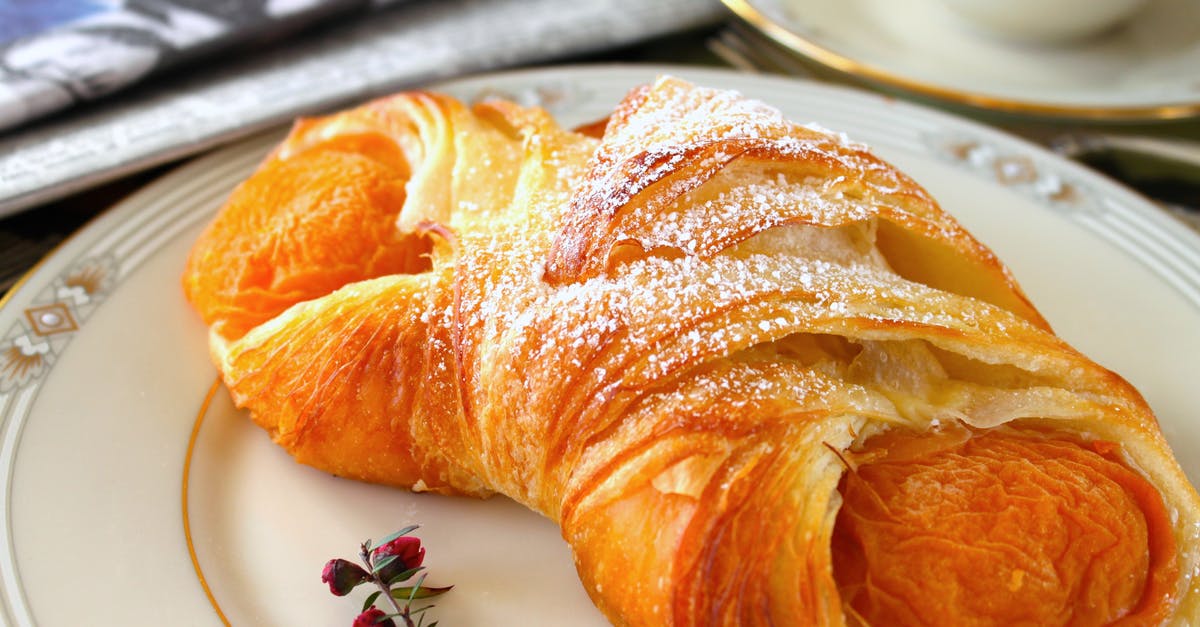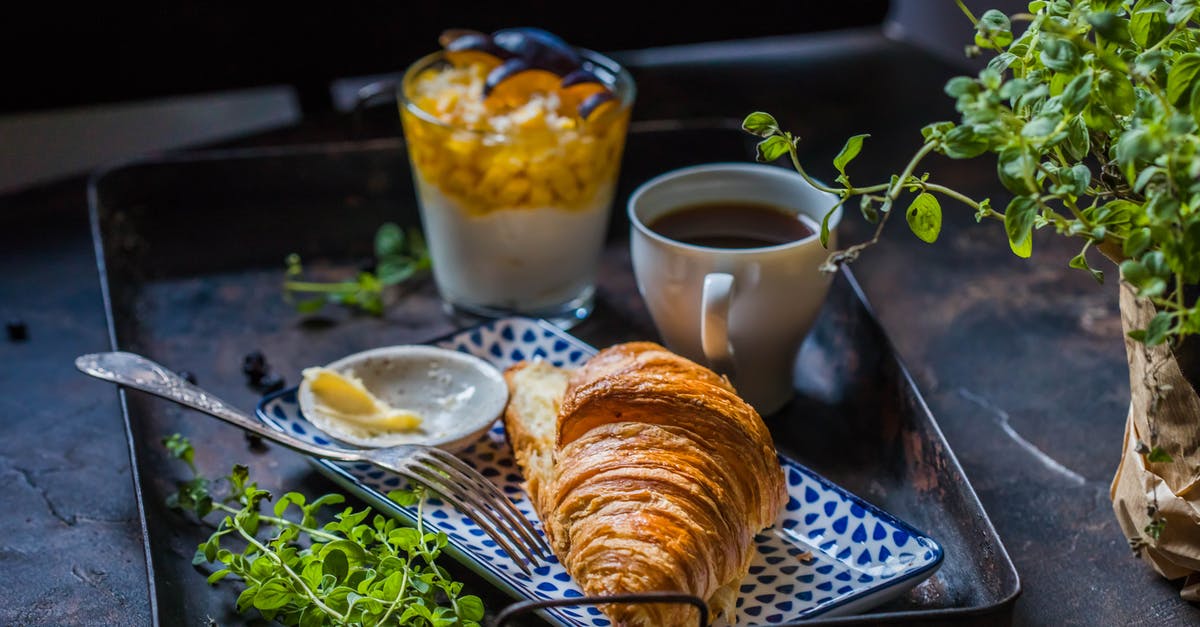Using A Combination of Ghee and Unsalted Butter for Croissants

Novice baker here. I live in South Africa, where it is difficult to find European style butter and the one we do have is exorbitantly expensive, around 50 euros for 500g.
The closest to European style that we've got is an 82.4% butter from Lurpak
I've already checked here and here for ideas on what to do and I'm of two minds.
I know that Ghee is basically the Indian version of clarified butter and that its taste is similar to that of oil but what would happen if I combined both the Lurpak butter and Ghee in order to create something that is of both worlds. It would both, have a higher fat content as well as not taste completely of oil. Am I hoping for too much? Would the croissants taste oily if I used this method?
Best Answer
My suggestion would be to use the Lurpak butter and not worry. If you run into any problems, they won't come from the butter.
On the "European butter is better" story
I have also come across the story of the high-fat European butter, and I am quite puzzled by it. I personally live in Germany, and have shopped in several other European countries too. The butter in the supermarkets in Europe is consistently 82% or 83% fat. The fresh stick in my fridge is declared at 82%.
I have no idea how the whole matter came to be so prominent on the Internet. But I don't see much behind it.
- If people mean that in other locales, products labeled "butter" are noticeably less than 82% fat, then people should indeed try finding brands which sell 82%-fat-butter, or something close to it. You noted yourself that the Lurpak butter has that much fat.
- If people think that in Europe, butter has much more fat than the 82% declared as legal minimum, they are mistaken. Maybe professional bakers can source some specialty butter that goes higher, I don't know. But the average home baker works with what is on the supermarket shelf, which is 82 to 83%.
- The most unusual claim I have heard is that the difference in actual fat content is tiny (e.g. 80 vs. 82%), but the resulting difference in taste is huge. I find that hard to believe. If you are using 100 g butter in a recipe, 1.6 grams of fat more, or 1.6 grams of (bound) water less, is an absolutely tiny amount. It is below the accuracy of home scales, and it is also less than the amount that gets smeared on your bowl and spoon when you transfer the butter from a mise-en-place bowl to the mixing bowl. Its contribution to the final texture should be much smaller than other factors of butter quality, which you simply cannot read off the butter's packaging.
- There certainly are small artisanal dairies in Europe which promote their production as superior in quality. But their distinguishing criteria are not in the fat content. You won't be able to emulate the results produced with such butter by just having higher fat content. Also, this is such an incredibly tiny detail in optimizing quality, that you have to get everything else absolutely perfect before people with refined palates start noticing the difference. It may be the detail that decides whether a five-star bakery will beat another five-star bakery for the coveted spot on the food critics' list, but it is not something a home baker should worry about.
Lurpak is a brand by Arla, one of the major dairy producers in Europe, and according to its website, it is positioned as a "premium brand". It should be equivalent, or even better, to the butter that home bakers in Europe use for their baking. Using it as-is should give you the results your recipe was designed for.
On mixing butter with ghee
Sure, you can do that, if this is what you want. The question is, why would you?
First, the fat content of a 50-50 mix would be 91%, which is a lot more than standard European butter. If you think that your recipe may be off from just 1% difference, you would expect a disaster from 9% difference. In reality, I think that it won't be a disaster, but it certainly won't be what the recipe is aiming for.
Second, ghee is structurally very different from butter. It has been melted, destroying the complicated emulsion-plus-crystals-plus-semisolid-fat mixture that is butter. When you use ghee, that will have a much larger effect on texture (in unpredictable ways) than the difference in fat percentages.
Third, ghee is different not only in structure, but also in taste/aroma. The final taste will not be the same as when you bake with pure butter.
All in all, if you want to experiment with ghee, you can do it. But don't think that you are "correcting" a "problem". There is no problem to start with, and if there were (e.g. if you only had access to 80% butter), then the addition of ghee would be a risky move that gets you away from the original, not a correction.
Pictures about "Using A Combination of Ghee and Unsalted Butter for Croissants"



Should ghee be made with salted or unsalted butter?
Salted or unsalted will work, though some insist that the best ghee is made with unsalted butter. I've used both. Put the butter in a saucepan. It will melt faster if you cut it up a bit first.Can we use butter and ghee?
You can use ghee the same way you would use butter or cooking oil. Ghee is perfect for frying, roasting, and sauteing meats, fish, veggies, and eggs. You can use ghee as a condiment on a baked potato or roasted squash. Ghee can be used like butter on bread and bagels.Can I use normal butter for croissants?
3 Answers. Show activity on this post. A mix of clarified and ordinary unsalted butter works well. I used clarified butter that was simmered for a long time to be sure the water was thoroughly removed, just to the point where it stops sputtering, and the solids in the bottom begin to brown.Which unsalted butter is best for making ghee?
Butter - Use good quality butter for making the best ghee in terms of taste, texture, and flavor. I prefer Kerry Gold unsalted butter. You can also use salted butter but it cooks fast and also tends to splash more and high as compared to unsalted so be careful.The Best Butter to Use to Make Croissants : Wild Flour
Sources: Stack Exchange - This article follows the attribution requirements of Stack Exchange and is licensed under CC BY-SA 3.0.
Images: Mick Victor, Valeria Boltneva, Mick Victor, Valeria Boltneva
